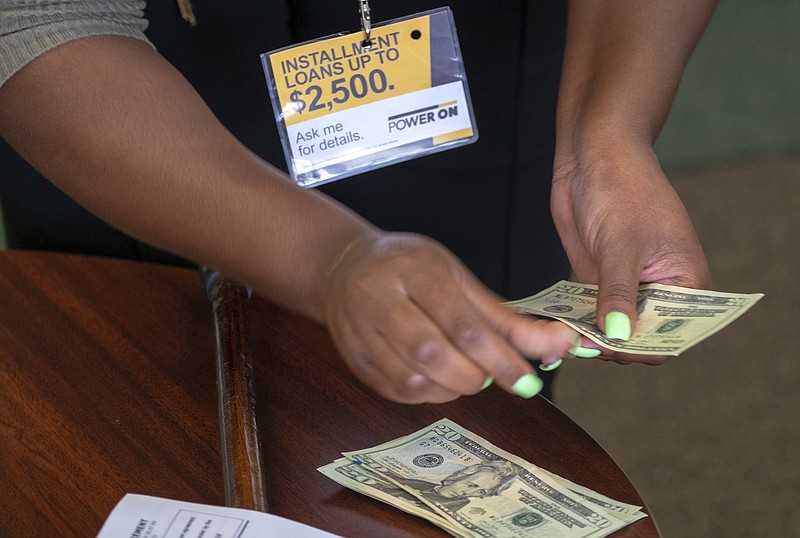Q: The Coronavirus pandemic is creating a sensitive source of anxiety for personal finances right now. What suggestions and advice may BBB provide regarding personal finances at this time? As worries mount, unfortunately, so can the risk of inflicting long-term damage to your credit score?
A: Great question and your concerns are shared with many. Now more than ever, it is important for consumers to know their options and take the steps available for managing their debt. Lenders are creating many additional opportunities to help borrowers experiencing financial difficulties right now. Many are offering tolerance, loan extensions, reducing interest rates or other forms of flexibility.
Going forward with one of these repayment options should be done only if the appropriate precautions are taken. For one, make sure to secure written documentation of any arrangement worked out with your financial institution. Confirm that those repayment efforts are reflected in your credit reports. Monitoring those reports can be done for free through each of the three major credit bureaus.
First, be proactive in recognizing debt problems. Communication is critical in management of debt and seeking support. Managing debt safely and fairly should be a priority for every consumer, especially right now and avoid the stress that debt collectors may bring. Better Business Bureau recommends these tips for protecting your credit:
Get things done the "write" way. In addition to providing documentation of any repayment arrangements, debt collectors are legally required to provide a written "validation notice" of debt. The notice should detail the amount of debt owed, the name of the creditor and notice of the borrower's rights.
Dig into the details. Scammers surface any time consumers need help. As the pandemic continues, a growing number of bad actors will be posing as debt collectors so they can steal valuable personal information. Spotting these frauds can be as easy as asking for details like their name, company, street address and telephone number. Legitimate debt collectors will have answers to any questions about an account.
Know what is free versus what has a fee. The only legitimate website that offers a truly free credit report through the three major credit bureaus is AnnualCreditReport.com. That site is offering credit information to consumers on a weekly basis. Other sites claiming to offer "free" reports may ultimately include some type of fee deep within the fine print. Use those sites at your own risk.
Report any wrong-doings. If you feel a debt collector has acted unfairly or has failed to meet specified legal requirements, report your experience at BBB.org. Other outlets for filing a complaint include the Tennessee and Georgia State Office of the Attorney General, the Federal Trade Commission, and the Consumer Financial Protection Bureau. Sharing your experience may prevent others from encountering the same issue.
In a crisis, are Payday Loans an option?
As people are trying to find ways to make ends meet during the Coronavirus pandemic, some may be looking for ways to ease their financial stress? The BBB warns that people should consider alternatives to payday loans. Payday loans are short term loans that come with high interest rates. In some areas, there is no cap on annual interest rates for payday loans, which could be more than 300 percent APR.
Before applying for payday loans, the BBB suggests the following:
Payment Plan: Try to make your current situation more manageable by renegotiating your current debts with payment plans.
Personal Loans from a bank or credit union: They will be a cheaper alternative.
Credit card cash advance: Relying on a credit card cash advance is never a cheap option, though it's likely to be better than a payday loan. Most issuers will charge a percentage of the advance as a fee, usually around 5 percent, with a minimum of $5 to $10.
Paycheck advance: Some companies have employee assistance programs that can help employees in need.
Credit counseling: If your financial situation is out of control, Consumer Credit Counseling can help you analyze your debt.
401(k) loan: You may also consider borrowing from your own retirement or 401(k) account. As long as you repay the loan on schedule (including interest) and follow all the requirements of the loan, you shouldn't incur any taxes or penalties. There are new rules for borrowing funds during this pandemic crisis from your 401K.
If you must use a payday loan, BBB has this advice:
All loan companies are not the same: Check out the company's BBB Business Profile to see its rating, history of complaints and other information.
Never pay an upfront fee: Some short-term loan providers will ask for a post-dated check to cover the amount you borrowed plus interest and fees. However, if any lender asks for those fees in cash before giving you any money, walk away.
Limit the amount you borrow: Only borrow what you know you can pay off with your first paycheck
Know your rights: Payday lenders are required to disclose certain information before initiating a loan. That information includes the cost, the interest rate to be paid, and the specific fees that will be paid.
Read the fine print: Pay close attention to fees and consequences of non-payment.
Keep your documentation: Many consumers said they started receiving calls from collections agencies years after they paid off a payday loan. Some of these calls were simple errors; others were attempts by scammers to collect a debt that is not owed. Protect yourself by having documentation that all loans were paid in full.
Know where to turn: If you feel a lender has committed fraud or taken advantage of you, file a complaint with BBB, www.bbb.org and the FTC, www.ftc.gov. Find tips and information for helping both business owners and consumers during the coronavirus pandemic are available at www.bbb.org/coronavirus.
Jim Winsett is president of the Better Business Bureau in Chattanooga
